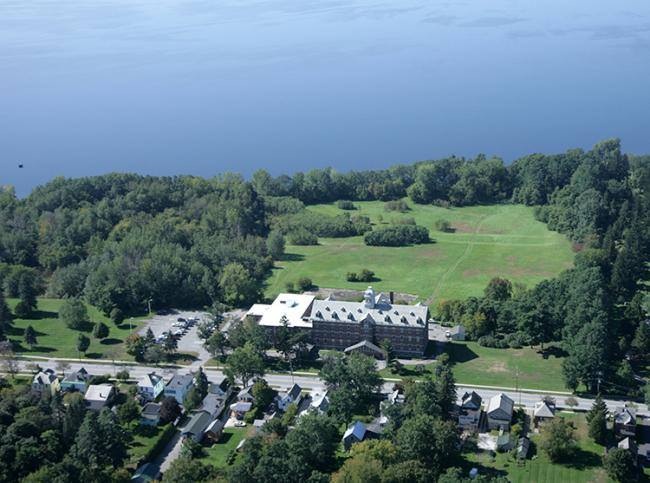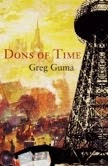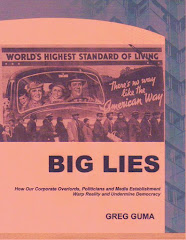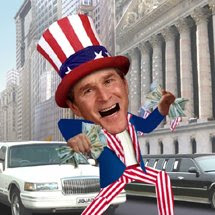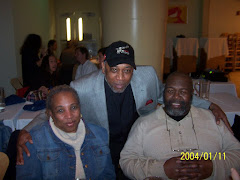In 1792, for the French revolutionist Jean Baptiste du Val-De-Grace, the answer was a World Republic that would place human rights above the rights of individual states. Three years later, the German philosopher Immanuel Kant proposed a similar but more modest plan: a confederation of nations. Urging world citizenship and freedom of movement, he envisioned a “covenant of peace” would some day make national conflict obsolete.
 Diplomats and statesmen struggled with formulas for transnational order for the next century. Finally, in 1899, at the urging of Czar Nicholas, an agreement – The Hague Treaty – was reached between 24 states. Recognizing that modern warfare and weapons posed a threat to humanity, these nation-states pledged at least to attempt the settling of their differences through “pacific methods” rather than force and violence.
Diplomats and statesmen struggled with formulas for transnational order for the next century. Finally, in 1899, at the urging of Czar Nicholas, an agreement – The Hague Treaty – was reached between 24 states. Recognizing that modern warfare and weapons posed a threat to humanity, these nation-states pledged at least to attempt the settling of their differences through “pacific methods” rather than force and violence.
Ten million people died during World War I anyway. The massive violence of that conflict was a sign that few nations could ignore.
In the aftermath, the League of Nations was established. Like plans before it, however, the League was complex and largely ineffective, burdened with responsibilities while deprived of real authority. Despite human rights declarations dating from 1789 in France, the League still represented only states, with no mention of the sovereignty of ordinary people. Within four years of its creation, it began to split into hostile alliances.
During the next World War, at least 60 million people died, more than half of them civilians, and in 1945 the “nuclear age” crashed into existence when atomic bombs were dropped on Japanese cities. The nature of war had become global and the survival of humanity was now at stake. Yet the nation-state war game continued unabated. By this time, the idea of some global authority could no longer be shrugged off. The possibility of nuclear warfare made the choice clear: global coordination or oblivion. But what kind?
The United Nations, also launched in 1945, was more like a forum than a government. It could not legislate on worldwide problems, nor enforce its views through any means but military action. Its members, all nation-states, still remained absolutely sovereign, free to make treaties or declare war without a nod to the UN.
Over the next half century, whenever UN decisions or Charter provisions stood in the way of some “national” agenda, they were ignored. As the Cold War gave birth to a nuclear arms race, as more than 50 armed conflicts between nations “great” and “small” created millions more victims, it became apparent that this latest attempt to create peace through a confederation of nations was a sterile and often deadly exercise. War, deprivation and torture gave grim daily testimony to the fact that the UN was largely powerless to protect and promote peace or human rights.
So long as the nation-state’s self-imposed amnesia persists, wars are inevitable. Like previous attempts to “rationalize” conflict without a fundamental transfer of sovereign power, the UN can only succeed in rare cases, when armed conflict no longer serves the selfish interest of the belligerents. Mainly, it is a hostage of the system it is expected to transform.
But if the confederal approach isn't the form of “higher authority” that can break nationalism’s spell, moving us to a workable and democratic world order, what will?
Declaring World Citizenship
We live in a geocentric world of nation-states, preoccupied mainly by “national” problems of the economy, society and politics. No matter where we live, for most of us the “nation” is the center of our political universe – the point around which revolve other nations and, supposedly, the rest of the world.
Our attachment to our nation, whether by birth or adoption, is not merely legal; it is profoundly emotional. Yet when nations deal with other nations, these attachments are given no weight. In the “international” context, the individual is nowhere to be found. Yet all nations claim to represent the very people they so often ignore. And ironically, most nations actually claim to derive their very legitimacy from their citizens. But if the people themselves are truly the source of each nation’s authority, it follows that the highest authority is humanity as a whole.
In any case, the power of nation-states certainly doesn't make them the only legitimate participants in decision-making. In a world threatened by war and injustice, responsible citizenship means a powerful assertion of humanity’s sovereignty. As Thomas Paine put it, “individual human beings, each in his or her own personal and sovereign right, enter into a compact with each other to produce any government.”
For such a higher authority to become a reality, however, a new compact is also needed, a global civic contract that transcends the national paradigm. The good news is that such a contract already exists, both naturally and legally.
Founded by Garry Davis in 1948 and formally established in 1953, the world citizens movement is both an extension of the individual and an expression of humanity as a whole. It grows from your sovereignty and mine, and from our shared commitment to each other’s protection and survival. It is a horizontal network based on natural rights and the human rights affirmed by national constitutions and international agreements like the Universal Declaration of Human Rights. It is also “vertical,” the political expression of a world community by those who recognize the limits of the planet itself.
In 1945, while observing delegates at the founding of the UN in San Francisco, E.B. White wrote: “Whether we wish it or not, we may soon have to make a clear choice between the special nation to which we pledge our allegiance and the broad humanity of which we are born a part.” World citizens make the second choice.
At the start, declaring yourself a world citizen was often symbolic, a way to embody a new transnational civic identity, one adopted by millions of people who registered as world citizens beginning in 1949. Gradually, however, it became more: an embryonic structure for the evolution of a global movement. An administrative arm, the World Service Authority, was established in 1954, and began to identify people from all corners of the planet, issuing documents to anyone who pledged allegiance to the new global compact.
In the decades since then, world citizens have worked to overcome the psychological barriers imposed by the polarized nation-state system. For example, the movement and the documents used by world citizens expose the anti-democratic core of most nation-states. But for many people – especially refugees and other victims of nationalism – world citizenship is more basic. For them, it means global political asylum.
Today the world continues to endure the incessant roar of chaos and conflict. But the primary causes of the chaos are nation-states themselves. Appeals to nationalism won't solve the problem. They are the problem.
A Global Response
It doesn't require much, certainly not the surrender of any personal freedom, the renouncing of “national” citizenship, or disloyalty to the nation of one’s birth. World citizenship simply replaces allegiance to an outdated political system that emerged in the 18th century with a modern global contract that recognizes the dynamic interdependence of our time.
We are linked across many artificial frontiers; communication, science, commerce and ecology don't recognize borders. In these areas and more, we already have one world. Many barriers are crumbling. World Citizenship makes our politics more consistent with reality.
To help build the movement, the World Service Authority responds to the needs of world citizens not only by issuing documents such as birth and marriage certificates, visas and passports. It has also sponsored study commissions, established a court and experimented with a monetary system.
The World Court of Human Rights was established in France by a General Assembly of World Citizens in 1972. A provisional statute for the court was drafted, and later the World Judicial Commission was set up to handle preliminary complaints filed by world citizens. The International Court of the Hague only handles cases between sovereign states, and only if both parties agree to the litigation. The UN Commission on Human Rights is powerless to help individuals when their interests and the arbitrary will of a nation-state collide.
World citizens, whose exercise of their human rights can contravene existing “national laws,” need a new kind of court, one grounded on the legal defense of global rights and accessible to all. As the first Chief Justice of the World Court, Dr. Luis Kutner explained upon accepting the post, “The international community has come to realize that human rights are not an issue to be left solely to the national jurisdiction of individual states. These rights obviously need protection at a higher level within the framework of international law.
Over the years, a number of study commissions have also been formed to deal with specific issues. Experts, all advocates of a just and democratic world order, have been recruited to pursue research in areas such as health, space, culture, economics, women, education, forestry, political asylum, communication and cybernetics.
The World Passport remains the most widely used document, a practical symbol and a useful tool for travelers. Contributors to the WSA's Refugee Fund have made it possible to issue passports for free to thousands of refugees and war victims, at least half of them women and children.
In sum, world citizens constitute a self-empowered global community of sovereign individuals who support an emerging body of “common world law,” including human rights covenants, the Stockholm Environmental Declaration and the Nuremberg Principles. This is not a parallel government or a supra-national federation. It's a meta-government of free human beings.
Written with Garry Davis for Passport to Freedom: A Guide for World Citizens

Ten million people died during World War I anyway. The massive violence of that conflict was a sign that few nations could ignore.
In the aftermath, the League of Nations was established. Like plans before it, however, the League was complex and largely ineffective, burdened with responsibilities while deprived of real authority. Despite human rights declarations dating from 1789 in France, the League still represented only states, with no mention of the sovereignty of ordinary people. Within four years of its creation, it began to split into hostile alliances.
During the next World War, at least 60 million people died, more than half of them civilians, and in 1945 the “nuclear age” crashed into existence when atomic bombs were dropped on Japanese cities. The nature of war had become global and the survival of humanity was now at stake. Yet the nation-state war game continued unabated. By this time, the idea of some global authority could no longer be shrugged off. The possibility of nuclear warfare made the choice clear: global coordination or oblivion. But what kind?
The United Nations, also launched in 1945, was more like a forum than a government. It could not legislate on worldwide problems, nor enforce its views through any means but military action. Its members, all nation-states, still remained absolutely sovereign, free to make treaties or declare war without a nod to the UN.
Over the next half century, whenever UN decisions or Charter provisions stood in the way of some “national” agenda, they were ignored. As the Cold War gave birth to a nuclear arms race, as more than 50 armed conflicts between nations “great” and “small” created millions more victims, it became apparent that this latest attempt to create peace through a confederation of nations was a sterile and often deadly exercise. War, deprivation and torture gave grim daily testimony to the fact that the UN was largely powerless to protect and promote peace or human rights.
So long as the nation-state’s self-imposed amnesia persists, wars are inevitable. Like previous attempts to “rationalize” conflict without a fundamental transfer of sovereign power, the UN can only succeed in rare cases, when armed conflict no longer serves the selfish interest of the belligerents. Mainly, it is a hostage of the system it is expected to transform.
But if the confederal approach isn't the form of “higher authority” that can break nationalism’s spell, moving us to a workable and democratic world order, what will?
Declaring World Citizenship
We live in a geocentric world of nation-states, preoccupied mainly by “national” problems of the economy, society and politics. No matter where we live, for most of us the “nation” is the center of our political universe – the point around which revolve other nations and, supposedly, the rest of the world.
Our attachment to our nation, whether by birth or adoption, is not merely legal; it is profoundly emotional. Yet when nations deal with other nations, these attachments are given no weight. In the “international” context, the individual is nowhere to be found. Yet all nations claim to represent the very people they so often ignore. And ironically, most nations actually claim to derive their very legitimacy from their citizens. But if the people themselves are truly the source of each nation’s authority, it follows that the highest authority is humanity as a whole.
In any case, the power of nation-states certainly doesn't make them the only legitimate participants in decision-making. In a world threatened by war and injustice, responsible citizenship means a powerful assertion of humanity’s sovereignty. As Thomas Paine put it, “individual human beings, each in his or her own personal and sovereign right, enter into a compact with each other to produce any government.”
For such a higher authority to become a reality, however, a new compact is also needed, a global civic contract that transcends the national paradigm. The good news is that such a contract already exists, both naturally and legally.
Founded by Garry Davis in 1948 and formally established in 1953, the world citizens movement is both an extension of the individual and an expression of humanity as a whole. It grows from your sovereignty and mine, and from our shared commitment to each other’s protection and survival. It is a horizontal network based on natural rights and the human rights affirmed by national constitutions and international agreements like the Universal Declaration of Human Rights. It is also “vertical,” the political expression of a world community by those who recognize the limits of the planet itself.
In 1945, while observing delegates at the founding of the UN in San Francisco, E.B. White wrote: “Whether we wish it or not, we may soon have to make a clear choice between the special nation to which we pledge our allegiance and the broad humanity of which we are born a part.” World citizens make the second choice.
At the start, declaring yourself a world citizen was often symbolic, a way to embody a new transnational civic identity, one adopted by millions of people who registered as world citizens beginning in 1949. Gradually, however, it became more: an embryonic structure for the evolution of a global movement. An administrative arm, the World Service Authority, was established in 1954, and began to identify people from all corners of the planet, issuing documents to anyone who pledged allegiance to the new global compact.
In the decades since then, world citizens have worked to overcome the psychological barriers imposed by the polarized nation-state system. For example, the movement and the documents used by world citizens expose the anti-democratic core of most nation-states. But for many people – especially refugees and other victims of nationalism – world citizenship is more basic. For them, it means global political asylum.
Today the world continues to endure the incessant roar of chaos and conflict. But the primary causes of the chaos are nation-states themselves. Appeals to nationalism won't solve the problem. They are the problem.
A Global Response
It doesn't require much, certainly not the surrender of any personal freedom, the renouncing of “national” citizenship, or disloyalty to the nation of one’s birth. World citizenship simply replaces allegiance to an outdated political system that emerged in the 18th century with a modern global contract that recognizes the dynamic interdependence of our time.
We are linked across many artificial frontiers; communication, science, commerce and ecology don't recognize borders. In these areas and more, we already have one world. Many barriers are crumbling. World Citizenship makes our politics more consistent with reality.
To help build the movement, the World Service Authority responds to the needs of world citizens not only by issuing documents such as birth and marriage certificates, visas and passports. It has also sponsored study commissions, established a court and experimented with a monetary system.
The World Court of Human Rights was established in France by a General Assembly of World Citizens in 1972. A provisional statute for the court was drafted, and later the World Judicial Commission was set up to handle preliminary complaints filed by world citizens. The International Court of the Hague only handles cases between sovereign states, and only if both parties agree to the litigation. The UN Commission on Human Rights is powerless to help individuals when their interests and the arbitrary will of a nation-state collide.
World citizens, whose exercise of their human rights can contravene existing “national laws,” need a new kind of court, one grounded on the legal defense of global rights and accessible to all. As the first Chief Justice of the World Court, Dr. Luis Kutner explained upon accepting the post, “The international community has come to realize that human rights are not an issue to be left solely to the national jurisdiction of individual states. These rights obviously need protection at a higher level within the framework of international law.
Over the years, a number of study commissions have also been formed to deal with specific issues. Experts, all advocates of a just and democratic world order, have been recruited to pursue research in areas such as health, space, culture, economics, women, education, forestry, political asylum, communication and cybernetics.
The World Passport remains the most widely used document, a practical symbol and a useful tool for travelers. Contributors to the WSA's Refugee Fund have made it possible to issue passports for free to thousands of refugees and war victims, at least half of them women and children.
In sum, world citizens constitute a self-empowered global community of sovereign individuals who support an emerging body of “common world law,” including human rights covenants, the Stockholm Environmental Declaration and the Nuremberg Principles. This is not a parallel government or a supra-national federation. It's a meta-government of free human beings.
Written with Garry Davis for Passport to Freedom: A Guide for World Citizens
